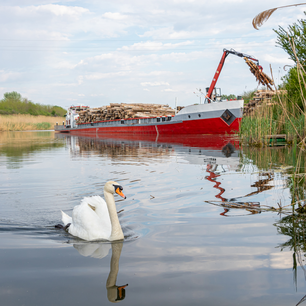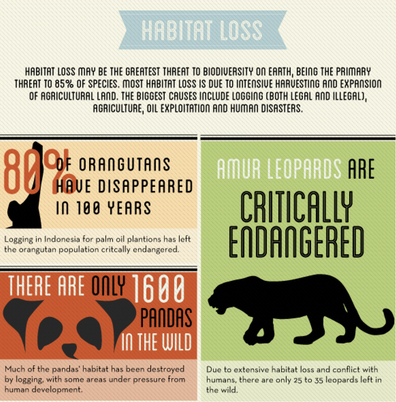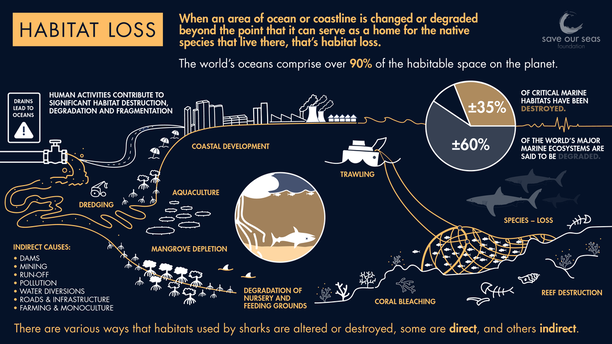
There are three major types of habitat loss: habitat destruction, habitat degradation and habitat fragmentation.
Habitat degradation (HD) is a term used to describe a set of processes by which habitat quality is reduced. HD can occur through natural processes (e.g., drought) and through human activities (e.g., agriculture, urbanisation).
HD is the primary threat to the survival of wildlife, when an ecosystem has been dramatically changed, either by human activities or by natural processes, it may no longer be able to provide food, water or cover for wildlife.
Individual actions can be taken to stop habitat destruction, for example:
- Use eco-friendly products
- Raising awareness and educating
- Plant new trees
Useful links:
-https://iwc.int/habitat-degradation
-https://blog.nationalgeographic.org/2019/09/25/the-global-impacts-of-habitat-destruction/
-https://eartheclipse.com/ecosystem/causes-effects-solutions-marine-habitat-loss-and-destruction.html
-https://environmental-conscience.com/habitat-destruction-causes-effects-solutions/
-https://www.environment911.org/The_Causes_of_Habitat_Destruction
-http://www.oceanhealthindex.org/methodology/components/habitat-destruction-intertidal
-https://www.nwf.org/Educational-Resources/Wildlife-Guide/Threats-to-Wildlife/Habitat-Loss
-https://www.cbf.org/issues/habitat/
Videos:
-https://www.youtube.com/watch?v=8_-bPc4uM7c

